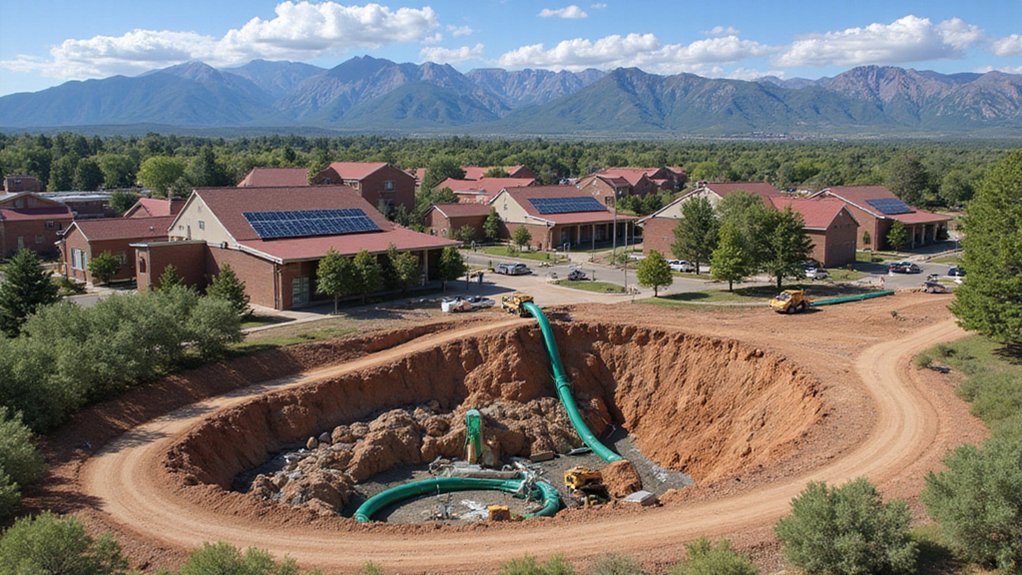The University of Colorado is finally ditching fossil fuel investments. Students and faculty won their uphill battle, convincing the institution to fully divest by 2027. The plan includes a massive 500-foot underground geothermal system—pretty slick for a university that’s been dragging its feet. Over 1,400 other schools beat them to it. Pressure from 1,400+ climate researchers on campus helped seal the deal. The Board of Regents isn’t exactly thrilled about the change.

Following years of relentless pressure from student organizations and faculty members, the University of Colorado is finally taking steps toward ditching its fossil fuel investments. On March 6, the Graduate and Professional Student Government assembly passed a resolution demanding CU completely divest from fossil fuels. About time, right?
The resolution didn’t mince words. It called for establishing a working group and setting a timeline for full divestment by 2027. This isn’t the first push, either. Chancellor Philip DiStefano, the Boulder Faculty Assembly, and CUSG have all previously recommended similar actions. Meanwhile, over 1,400 other higher education institutions worldwide have already cut ties with fossil fuel investments. CU’s been dragging its feet.
CU Boulder needs to catch up with 1,400 other schools that’ve already ditched fossil fuels—the clock’s ticking to 2027.
Student groups and faculty have been relentlessly advocating for this change. An open letter has been making the rounds, urging the entire University of Colorado system to not just divest from fossil fuels but actively invest in a just energy shift. The Equity and Advocacy Committee has been instrumental in supporting these initiatives.
The Board of Regents, who holds the purse strings, hasn’t exactly been cooperative. They’ve repeatedly rejected calls for immediate divestment despite mounting pressure from all sides. Talk about being on the wrong side of history.
For a university that prides itself on being a leading research institution in climate change, justice, and sustainability, its investment portfolio tells a different story. The resolution emphasized the urgency for immediate action to align CU’s investments with its stated values. The hypocrisy is palpable. CU Boulder has the highest concentration of climate-related researchers who could provide valuable scientific understanding to guide the university’s investment decisions.
If approved, the divestment would greatly boost CU Boulder’s reputation as a climate action leader. The plan includes phased withdrawal strategies to minimize financial risks—smart move. By divesting and investing in renewable energy, the university could help create high-paying jobs in a sector that’s crucial for challenging China’s global dominance in clean technology. Progress would be tracked through transparency and measurable milestones.
The target date of 2027 gives the university just three years to untangle itself from fossil fuel investments. Whether they’ll actually follow through remains to be seen. After all, talk is cheap. But with continued pressure from students and faculty, the university might finally practice what it preaches.









